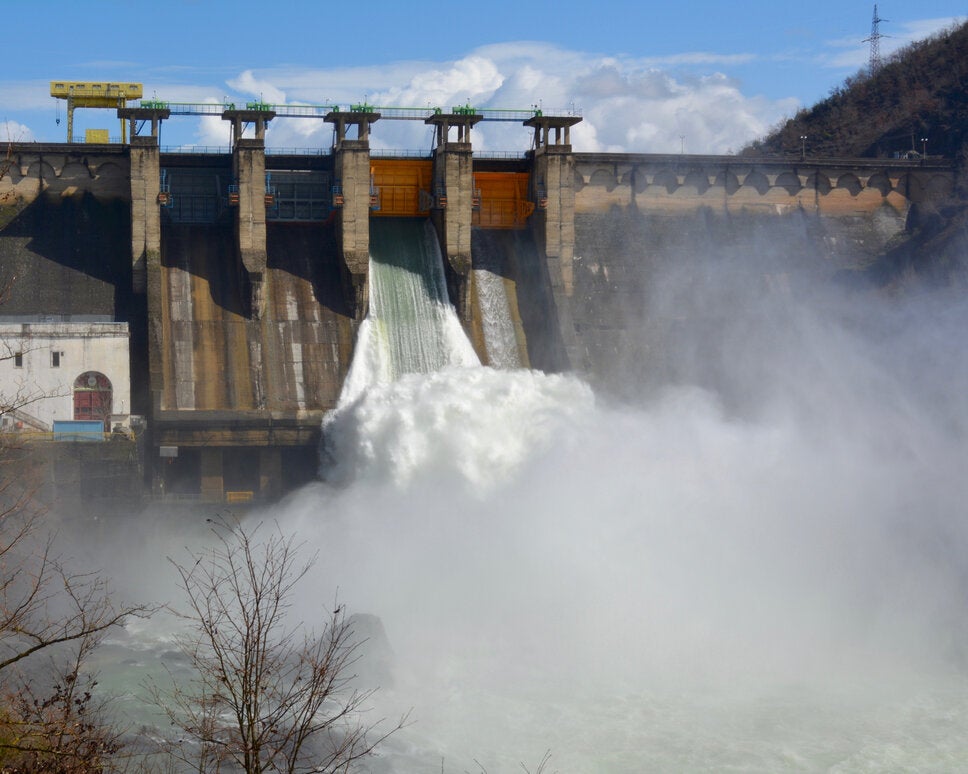
Residents of Miredita, in the north of Albania, protested on Sunday against the planned construction of five hydropower plants (HPPs) in the region, Euractiv reports.
The protestors said that the new plants will have a detrimental impact on their homes and livelihoods, and will limit access to the water they need to work the land. Agriculture accounts for 40% of employment in Albania and 19% of its gross domestic product.
“We have gone out other times, but now the going out is getting wilder. You took away our water, they took away our lives. We will continue the protests”, Mark Përkola, a resident of the area, told the Balkan Investigative Reporting Network via Euractiv.
Local authorities granted concessions for the five HPPs in 2018, but residents of seven surrounding villages managed to prevent the start of construction by suing the company Shpërdhaza Energji shpk and local municipal officials for corruption, forgery of documents and abuse of duty. The file was registered to the Special Court Against Organised Crime and Corruption but was later passed to the Lezha Prosecutor’s Office.
After an investigation the Lezha court ruled that the dispute had no legal basis, and the case was dismissed. Despite appeals, there has been no movement on the case regarding legal opposition to the plants since 2021.
On Sunday, protests continued after thecontractors returned to the area in preparation to begin work.
How well do you really know your competitors?
Access the most comprehensive Company Profiles on the market, powered by GlobalData. Save hours of research. Gain competitive edge.

Thank you!
Your download email will arrive shortly
Not ready to buy yet? Download a free sample
We are confident about the unique quality of our Company Profiles. However, we want you to make the most beneficial decision for your business, so we offer a free sample that you can download by submitting the below form
By GlobalDataAlbania generates 95% of its domestic electrical energy via hydropower and it one of only a few European countries that does not use gas. This can leave the country’s power infrastructure vulnerable to low rain fall; last year, concerns over reservoir levels mounted on several occasions afterheatwaves and droughts threatened water security.
Additional opposition to hydropower
Residents have also protested against the construction of the 147-metre high Skavica dam in the Dibra region, a project that would see more than 58 square miles of mostly agricultural land and forest flooded, along with 41 villages.
Campaign group Bankwatch has condemned greenfield hydropower projects, saying “in the worst cases, huge areas of land are flooded, many people need to abandon their homeland, rivers are converted into artificial reservoirs, wild animals are brought to extinction and the country is left with foreign debts and a climate-vulnerable energy system.” The Skavica dam is “extremely damaging,” Bankwatch added.
The World Wildlife Fund, an activist organisation, is currently advocating for a ban on new hydropower construction in Europe because of the damage they cause to rivers and biodiversity. The fund added that hydropower in Albania is destroying cultures, livelihoods and ways of life.
The World Bank announced in 2018 that it would provide approximately $13m (€12m) in funding to the Dam Safety Project in Albania to support safety and efficiency improvements to three HPPs located on the Drin and Mat cascades.


